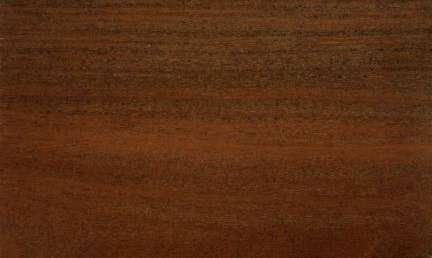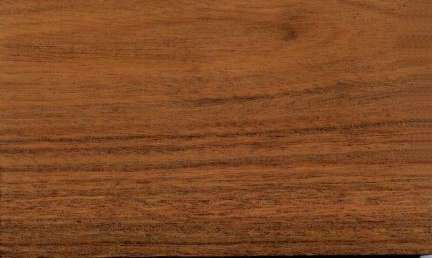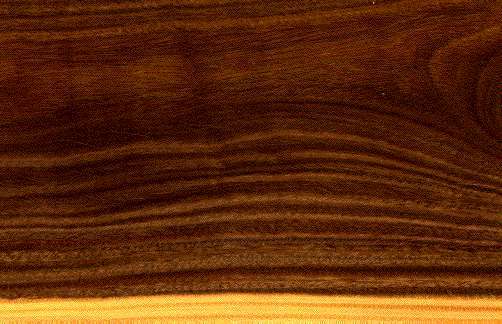   
Verawood (Bulnesia arborea)
Family: Zygophyllaceae
Common names: Bera, Bera cuchivaro, Berra, Congo cypress, Cuchivaro, Guayac de caracas, Guayacan, Guayacan de bola, Guayacan polvillo, Guayacan resino, Maracaibo, Maracaibo lignum vitae, Maracaibo lignum-vitae, Palo sano, Venesia, Vera, Vera aceituna, Vera amarilla, Vera azul, Vera blanca, Vera pocktree, Veraholz, Verawood
Distributed in: Brazil, Colombia, Columbia, Venezuela (Central America, Latin America)
Distribution overview: Coastal region of Colombia and Venezuela, common on the dry foothills between Porto Cabello and Lake Maracaibo.
Common uses: Bearings & bushings, Boat building (general), Brush backs & handles, Crossties, Heavy construction, Light construction, Machinery parts, Poles, Pulley wheels, Railroad ties, Sporting Goods, Turnery
Product sources: Verawood occurs in small numbers and is becoming even rarer, which makes it very expensive. The species also grows very slowly, and requires centuries to mature.
Environment profile: Status has not been officially assessed
Tree size: Trunk diameter is 100-150 cm
Colors: the heart isRed, Yellow to golden-yellow to orangeand the sapwoodPink, White to yellow.The grain isStriped figure, the textureVery fineand the lusterMedium
Natural durability: Very durable, Very durable
Odor: Mild odor when warmed
Kiln Schedules: Dry at a slow speed
Drying Defects: Shakes, Splitting
Ease of Drying: Dries slowly with careful attention needed
It requires careful attention because of its high density and resinous nature
Tree Identification: Bole/stem form is straight
Comments: Generally very strong , very heavy, highly rigid, high resistance, self-lubricating
Blunting Effect: Blunting effect on sawing is severe
Boring: Fairly easy to very easy
Carving: Fairly Easy to Very Easy
Cutting Resistance: Difficult to saw
Very high density and cross-grain combine to make seasoned wood very difficult to process.
Gluing: Impossible to glue
Resists all types of adhesives
Mortising: Fairly Easy to Very Easy
Moulding: Fairly Easy to Very Easy
Movement in Service: Fairly Easy to Very Easy
Planing: Fairly Easy to Very Easy
Resistance to Impregnation: Heartwood is extremely resistant
Response to hand tools: Easy to Work
Routing recessing: Fairly Easy to Very Easy
Veneering qualities: Suitable for peeling, Suitable for slicing
Turning: Very good
Polishing: Satisfactory; Staining: Difficult to stain.
;
- Numerical data Metric
- Numerical data English
- Strength properties
- References
 |
 |
 |
 |
| Item |
Green |
Dry |
Metric |
| Specific Gravity |
0,92 |
|
|
| Density |
|
1137 |
kg/m3 |
| Bending Strength |
|
|
kg/cm2 |
| Crushing Strength |
|
|
kg/cm2 |
| Hardness |
|
|
kg |
| Impact Strength |
|
|
cm |
| Shearing Strength |
|
|
kg/cm2 |
| Stiffness |
|
|
1000 kg/cm2 |
| Tangential Shrinkage |
|
|
% |
| Radial Shrinkage |
|
|
% |
| Weight |
|
|
kg/m3 |
| Maximum Load |
|
|
cm-kg/cm3 |
| Toughness |
|
|
cm-kg |
| Static Bending |
|
|
kg/cm2 |
|
 |  |  |  | | Item | Green | Dry | English | | Density | | 71 | lbs/ft3 | | Specific Gravity | 0.92 | | | | Weight | 62 | 56 | lbs/ft3 | |
Density (dry weight) = > 75 lbs/cu.ft.
Density (dry weight) = 67-75 lbs/cu. ft.
Density = high
Density (dry weight) = 61-67 lbs/cu.ft.
Arno, J. 1992. Bulnesia arborea - Verawood. In A Guide to Useful Woods of the World, Flynn Jr., J.H., Editor. King Philip Publishing Co., Portland, Maine. 1994. Page 72-73.Brown, W.H.,1978,Timbers of the World, No. 2 South America,TRADA, Red Booklet SeriesChichignoud, M., G. Deon, P. Detienne, B. Parant and P. Vantomme.1990.Tropical Timber Atlas of Latin America.International Tropical Timber Organization (ITTO, Centre Technique Forestier Tropical, Division of CIRAD, 45 bis Avenue de la Belle Gabrielle, Nogent-sur-Marne, CEDEX, France.Chudnoff, M.,1984,Tropical Timbers of the World,U.S.A. Department of Agriculture, Forest Service, Forest Products,Laboratory, Madison.Cronquist, A.,1957,Las Zygophyllaceas Venezolanas,Bull. Jard. Bot. Bruxelles,27(3,pp381-9Howard, A.L.,1948,A Manual of Timbers of the World.,Macmillan & Co. Ltd. London 3rd ed.Record, S.J., Hess, R.W.,1943,Timbers of the New World,Yale University PressRecord, S.J., Mell, C.D.,1924,Timbers of Tropical America,Yale Univ. PressRecord, S.J.,1921,A Study of the Woods of the Zygophyllaceae with reference to the True,Lignum vitae of Commerce - its sources, properties, uses and substitutes,Yale University School of Forestry Bulletin,No.6Timber Development Association,1943,Timber Leaflet no. 86 Lignum Vitae,TRADA Timber leafletTimber Development Association,1948,Some New Timbers and Their Uses No. 34,Timber Development Association Limited, London [TRADA]WCMC. 1992. Conservation Status Listing - Trees and Timbers of the World. World Conservation Monitoring Center-Plants Programme, Cambridge, CB3 ODL, United Kingdom.
|











